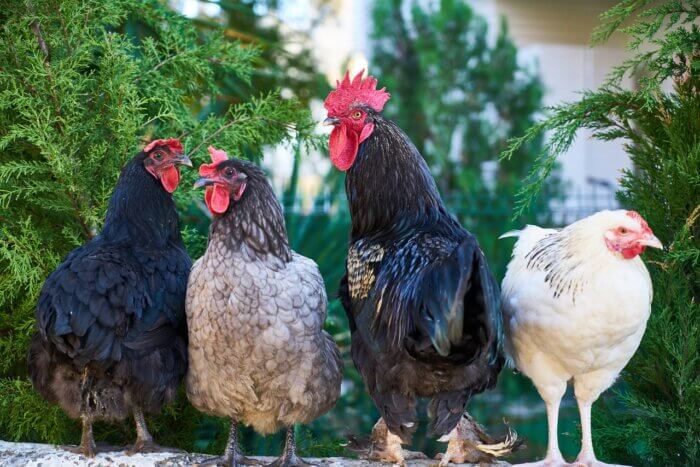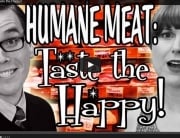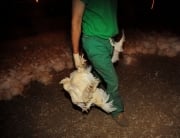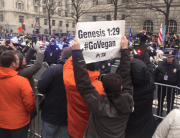
This week, Pope Francis released the highly anticipated apostolic exhortation Laudate Deum, a follow-up to his landmark environmental encyclical Laudato si’, On Care for Our Common Home. This new companion piece, whose title means “Praise God,” addresses “all people of good will” about the climate catastrophe and the inadequate human response since the publication of Laudato si’ in 2015. It calls for urgent action to prevent “immensely grave consequences for everyone.”
Although Laudate Deum focuses on the climate catastrophe generally, Pope Francis’ statements throughout the exhortation apply to all exploitation of the planet. As the pope addresses the plundering of the world, he highlights our connection with other sentient beings and how all animals suffer as a result of selfish, short-sighted human practices.
Drawing from many sources, including the original Laudato si’, his statements are inspiring to everyone working to fight climate change and the plundering of creation.
It’s impossible to read Laudate Deum without making the connection to the exploitation of animals—each a miracle made by God yet turned into commodities by cruel, greedy human industries and forced to endure lives of misery. At PETA LAMBS, we’ve highlighted a few of the passages that resonated with us the most:
On human intervention: “Yet we can no longer doubt that the reason for the unusual rapidity of these dangerous changes is a fact that cannot be concealed: the enormous novelties that have to do with unchecked human intervention on nature in the past two centuries.” (#14)
Recognizing the consequences of our actions on other species: “Ocean waters have a thermal inertia and centuries are needed to normalize their temperature and salinity, which affects the survival of many species. This is one of the many signs that the other creatures of this world have stopped being our companions along the way and have become instead our victims.” (#15)
On the lack of respect for all that exists: “Everything that exists ceases to be a gift for which we should be thankful, esteem and cherish, and instead becomes a slave, prey to any whim of the human mind and its capabilities.” (#22)
On the technocratic paradigm: “We have made impressive and awesome technological advances, and we have not realized that at the same time we have turned into highly dangerous beings, capable of threatening the lives of many beings and our own survival.” (#28)
On activists working for good: “[T]he actions of groups negatively portrayed as ‘radicalized’ tend to attract attention. But in reality they are filling a space left empty by society as a whole, which ought to exercise a healthy ‘pressure’, since every family ought to realize that the future of their children is at stake.” (#58)
On caring for creation: “Hence, ‘the creatures of this world no longer appear to us under merely natural guise, because the risen One is mysteriously holding them to himself and directing them towards fullness as their end. The very flowers of the field and the birds which his human eyes contemplated and admired are now imbued with his radiant presence. … The world sings of an infinite Love: how can we fail to care for it?” (#65)
On our interconnectedness with other species: “The Judaeo-Christian vision of the cosmos defends the unique and central value of the human being amid the marvelous concert of all God’s creatures, but today we see ourselves forced to realize that it is only possible to sustain a ‘situated anthropocentrism’. To recognize, in other words, that human life is incomprehensible and unsustainable without other creatures. For as part of the universe … all of us are linked by unseen bonds and together form a kind of universal family, a sublime communion which fills us with a sacred, affectionate and humble respect.” (#67)
On the impact of personal change—and its role in effecting cultural and political change: “I ask everyone to accompany this pilgrimage of reconciliation with the world that is our home and to help make it more beautiful, because that commitment has to do with our personal dignity and highest values.” (#69)
*****
Just as there’s an important intersection between animal rights and other social justice issues, being committed to caring for God’s creation and fighting for our planet’s survival go hand in hand. Helping to halt the climate catastrophe and other environmental problems by eating vegan—and urging our friends and family to do the same—is a powerful way to heed Pope Francis’ call. We need to respect and revere the other sentient beings we share this world with.
Are you looking to do more? Order a Creation Care Toolkit and spread the message of compassion with your faith community.






